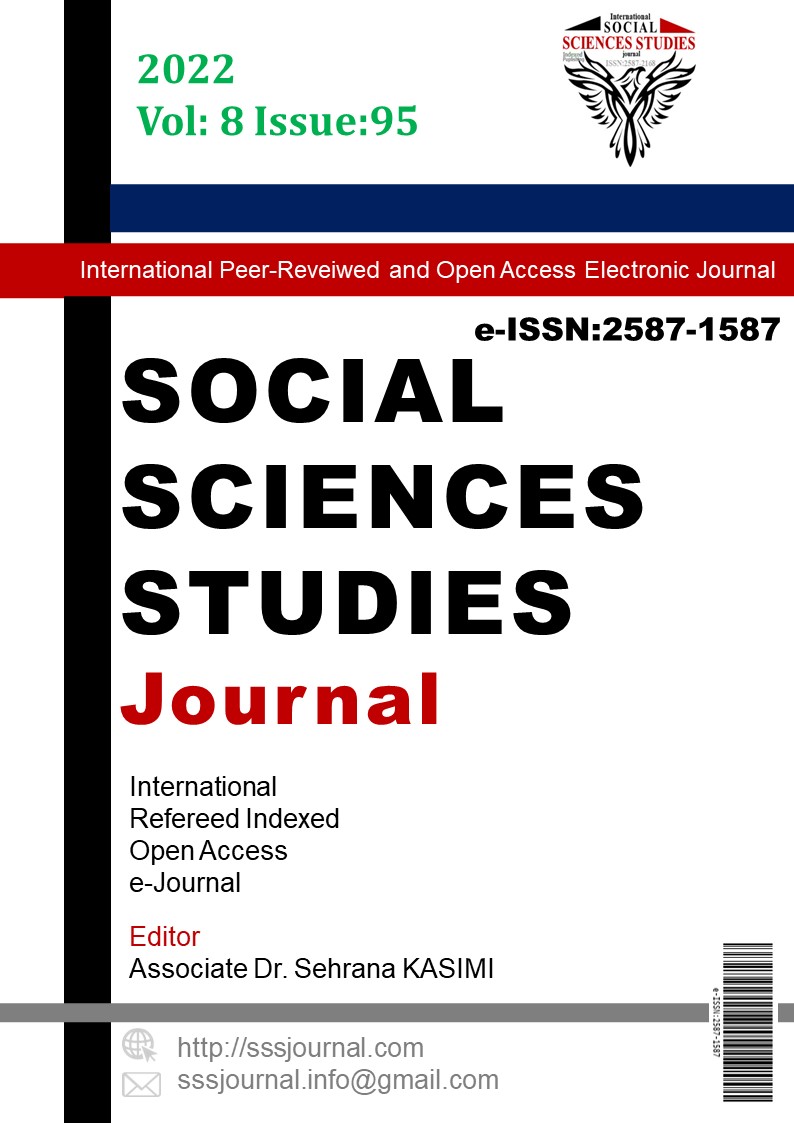Author :
Abstract
Fıkıh, İslam’ın hayata yansıyan amelî hükümlerini ifade ederken, tasavvuf ise İslam’ın manevî yaşantısı, içsel yönü veya kalp ile ilgili tarafı şeklinde tanımlanır. Buna göre fıkıh İslam’ı yaşamanın zahiri yönü iken, tasavvuf ise bâtınî/içsel yönüdür. Dinî yaşamda bu unsurların her ikisinin de gerekli olduğu bir gerçektir. Örneğin ibadetlerin kâmil manada ifasında maddi ve manevi boyutların birlikte bulunması gerekir. Ancak tarihi süreçte bu iki ilim dalı sanki birbirinin zıttı imiş ve aralarında hiçbir şekilde uyum yokmuş, hatta bu iki ilim mensuplarının sürekli bir çekişme ve tartışma halinde bulundukları gibi bir algının ortaya çıktığı görülmektedir. Gerçekte ise bu durumun bu ilimler kaynaklı olmadığı, bazen çatışma düzeyine ulaşan bu çekişmelerin ise bu ilimlere mensup bir kısım insanın karşı tarafı ifrat düzeyindeki (aşırıya kaçan şekilde) suçlama ve eleştirilerinden kaynaklandığı ortaya çıkmaktadır. Bu çalışmada günümüzde fıkıh-tasavvuf ilişkisine dair yazılan kitap, tez, makale ve bildiri türünde akademik çalışmalar kısaca tanıtılmıştır. Araştırma sonucu ortaya çıkan duruma bakıldığında, bu iki ilim dalı bazı farklı metot ve uygulamalara sahip olsalar da aralarında çekişme ve tartışmaların değil, bütünlük ve birbirini tamamlamanın esas olması gerektiği genel bir kanaat halindedir. Makalenin sonuç kısmında, bu çalışmalarda fıkıh-tasavvuf ilişkisine dair ortaya çıkan görüş ve tespitler özetle sunulmuştur.
Keywords
Abstract
While fiqh expresses the practical provisions of Islam that are reflected in life, Sufism is defined as the spiritual life, inner aspect or the heart-related aspect of Islam. Accordingly, fiqh is the virtual aspect of living Islam, whereas Sufism is its esoteric/inner aspect. It is a fact that both of these elements are necessary in religious life. For example, material and spiritual dimensions must be present together in the perfect performance of worship. However, in the historical process, we observe a perception as if these two branches of science had been opposite to each other and there was no harmony between them, and even as if the members of these two sciences were in a constant state of contention and discussion. In reality, however, it turns out that this situation is not due to these sciences, and that these arguments, which sometimes reach the level of conflict, are caused by the excessive (extreme) accusations and criticisms of some people who are a member of these sciences. In this study, academic studies such as books, theses, articles and papers on the relationship between fiqh and Islamic sufism are briefly introduced. Considering the results of the research, it is a general opinion that although these two branches of science have some different methods and applications, integrity and complementing each other should be essential, not conflicts and discussions between them. In the conclusion part of the article, the opinions and findings that ensued in these studies on the relationship between fiqh and sufism are summarized.
Keywords
- Aslan, N. & Aydın, M.Ş. (2021). “Zâhir ve Bâtın Bağlamında Tevilin Sınırları/Fıkıh Tasavvuf İlişkisi -Taharet
- Aslan, N. & Aydın, M.Ş. (2021). “Zâhir ve Bâtın Bağlamında Tevilin Sınırları/Fıkıh Tasavvuf İlişkisi -Taharet Örneği-”. Marife Dini Araştırmalar Dergisi, 21(1): 381-407.
- Başer, H. B. (2015). “Sünni Tasavvufun Teşekkül Sürecinde Şeriat-Hakikat İlişkisi Sorunu (Hicrî III. ve IV. Yüzyıllar)”. Doktora Tezi, İstanbul Üniversitesi Sosyal Bilimler Enstitüsü, İstanbul.
- Dokgöz, D. (2021a). “Epistemolojik Açıdan Tasavvuf Fıkıh İlişkisi: Rûhû’l-Beyân Tefsiri Özelinde”, Doğu Anadolu Sosyal Bilimlerde Eğilimler Dergisi, 5(1):26-49.
- Dokgöz, D. (2021b). “Fıkıh Tasavvuf İlişkisinde İmâm-ı Rabbânî”. Anatolian Congresses 7th International Social Sciences Congress, September 11- 12, 2021, (Editör: Gültekin Gürçay), 77-83 , Diyarbakır.
- Dursun, A. (2020). “Tasavvuf Fıkıh İlişkisi”, Doktora Tezi, Marmara Üniversitesi Sosyal Bilimler Enstitüsü, İstanbul.
- Erkaya, M. E. (2018). “Tasavvuf Klasiklerinde Tasavvuf ve Şeriat”, III. Uluslararası al- Farabi Sosyal Bilimler Kongresi, 9-11 Kasım 2018, (Ed:Mine Nur BOZDOĞAN), 353-360, Ankara.
- Güler, M. N. (2007). “Mesnevideki Bazı Ahkam Ayetlerin Yorumu Işığında Fıkıh Ve Tasavvufun Bilim Kuramına Ait Genel Bir Değerlendirme”, Harran Üniversitesi İlahiyat Fakültesi Dergisi, 18(18): 199-213.
- Karaman, H. (2019). Tasavvuf Şeriatsız Olmaz, İstanbul: İz yayıncılık.
- Kartal, A. (2015). Tasavvufun Oluşumu: Şeriat-Hakikat İlişkisi, Bursa: Emin Yayınları.
- Koca, F. (2002). “Osmanlılar Dönemi Fıkıh-Tasavvuf İlişkisi: Fakılar ile Sofular Mücadelesinin Tarihi Serüveni”, Gazi Üniversitesi Çorum İlahiyat Fakültesi Dergisi, 1:73-131.
- Konur, H. (1998). “Şeriat ve Tasavvuf”, İslamiyat, 1(4): 119-26.
- Korkut, R. (2017). “Halidî Tasavvuf Geleneğinde Fıkıh ve Tasavvuf İlişkisi (Seyda Muhammed Emin El-Hayderî Medresesi Örneği)”, The Journal of Academic Social Science, 5(53): 372-96.
- Köksal, İ. (1999). “Fıkıh ve Tasavvuf İlişkisi”, Tasavvuf: İlmi ve Akademik Araştırma Dergisi, 1(2): 83-104.
- Döner, N. & Topçu, Y. (2019). “Mahmûd Kefevî’nin ‘Ketâibu A’lâmi’l-Ahyârı’nda Tasavvuf-Fıkıh İlişkis”, Bozok University Journal of Faculty of Teology, 15(15): 135-56.
- Ögke, A. (2004). “İzz B. Abdisselam’da Fıkıh-Tasavvuf İlişkisi”, Dini Araştırmalar Dergisi, 16(18): 183-99.
- Polat, M. (2018). “Cemâl el-Halvetî’nin (v. 899/1494) ‘Esrâru’l-Vudû’ Adlı Risalesi Bağlamında Fıkıh-Tasavvuf İlişkisi”, Dergiabant (AİBÜ İlahiyat Fakültesi Dergisi), 6(12): 479-97.
- Şen, Y. (2014). “Zâhirî ve Bâtınî Fıkıh: Gümüşhanevî Örneği”, Gümüşhane Üniversitesi İlahiyat Fakültesi Dergisi, 3(6): 47-66.
- Şimşek, M. (2018). “Osmanlı’da Fıkıh-Tasavvuf İlişkisi: Kefevî’nin Ketâ’ib’inde Sûfîler”, Osmanlı’da İlm-i Tasavvuf, İstanbul: İsar Yayınları.
- Zorlu, C. (2010). “Ebu’l-Leys Muharrem Bin Muhammed Ez-Zîlî’nin Hubbu’l-Mesâil Adlı Eseri Bağlamında Fıkıh-Tasavvuf İlişkisi”, Yüksek Lisans Tezi, Cumhuriyet Üniversitesi Sosyal Bilimler Enstitüsü, Sivas.





